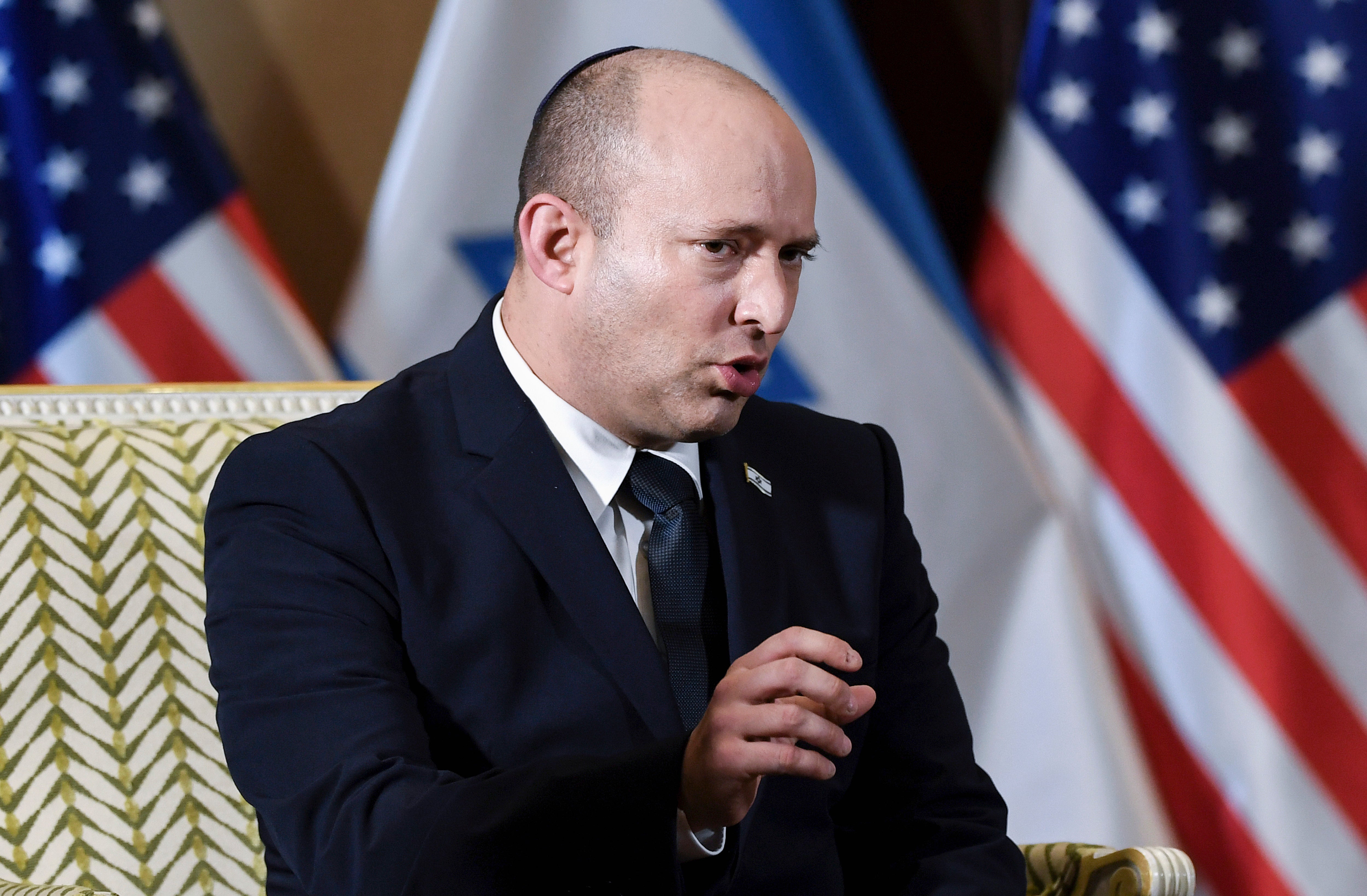Israeli PM aims to push Biden away from Iran nuclear deal
Israeli Prime Minister Naftali Bennett is aiming to dissuade President Joe Biden from returning to the Iran nuclear deal when the two leaders meet at the White House Friday

Israeli Prime Minister Naftali Bennett is aiming to dissuade President Joe Biden from returning to the Iran nuclear deal when the two leaders meet at the White House Friday.
The meeting, originally scheduled for Thursday, was postponed for one day as Biden focused his attention on dealing with the aftermath of a suicide bomb attack at the Kabul airport that killed at least 13 U.S. troops.
“On behalf of the people of Israel, I share our deep sadness over the loss of American lives in Kabul,” Bennett said in a statement posted on social media. “Israel stands with the United States in these difficult times, just as America has always stood with us. Our thoughts and prayers are with the people of the United States.”
Before arriving in Washington, Bennett made clear that he would push against the Iran deal, arguing Tehran has already advanced in its uranium enrichment, and sanctions relief would give Iran more resources to back Israel’s enemies in the region.
The Israeli leader met separately Wednesday with Secretary of State Antony Blinken and Defense Secretary Lloyd Austin to discuss Iran and other issues. The visit is his first to the U.S. as prime minister.
Bennett told his Cabinet before the trip that he would tell the American president “that now is the time to halt the Iranians, to stop this thing” and not to reenter “a nuclear deal that has already expired and is not relevant, even to those who thought it was once relevant.”
Biden has made clear his desire to find a path to salvage the 2015 landmark pact cultivated by Barack Obama’s administration but scuttled in 2018 by Donald Trump’s. But U.S. indirect talks with Iran have stalled and Washington continues to maintain crippling sanctions on the country as regional hostilities simmer.
Trump’s decision to withdraw from Iran’s nuclear deal led Tehran to abandon over time every limitation the accord imposed on its nuclear enrichment. The country now enriches a small amount of uranium up to 63%, a short step from weapons-grade levels, compared with 3.67% under the deal. It also spins far more advanced centrifuges and more of them than were allowed under the accord, worrying nuclear nonproliferation experts even though Tehran insists its program is peaceful.
Bennett's Washington visit comes weeks after Ebrahim Raisi was sworn in as Iran’s new president.
Raisi, 60, a conservative cleric with close ties to Supreme Leader Ayatollah Ali Khamenei, has suggested he'll engage with the U.S. But he also has struck a hard-line stance, ruling out negotiations aimed at limiting Iranian missile development and support for regional militias — something the Biden administration wants to address in a new accord.
Administration officials acknowledged that Iran’s potential “breakout” — the time needed to amass enough fissile material for a single nuclear weapon — is now down to a matter of months or less.
But a senior administration official, who spoke on condition of anonymity to preview the scheduled talks, said the administration sees the maximum pressure campaign employed by the Trump administration as having emboldened Iran to push ahead with its nuclear program.
Bennett is also looking to turn the page from his predecessor, Benjamin Netanyahu.
Netanyahu had a close relationship with Trump after frequently clashing with Obama. Biden, who has met with every Israeli prime minister since Golda Meir, had his own tensions with Netanyahu over the years.
During his latest White House campaign, Biden called Netanyahu “counterproductive” and an “extreme right” leader.
Bookmark popover
Removed from bookmarks